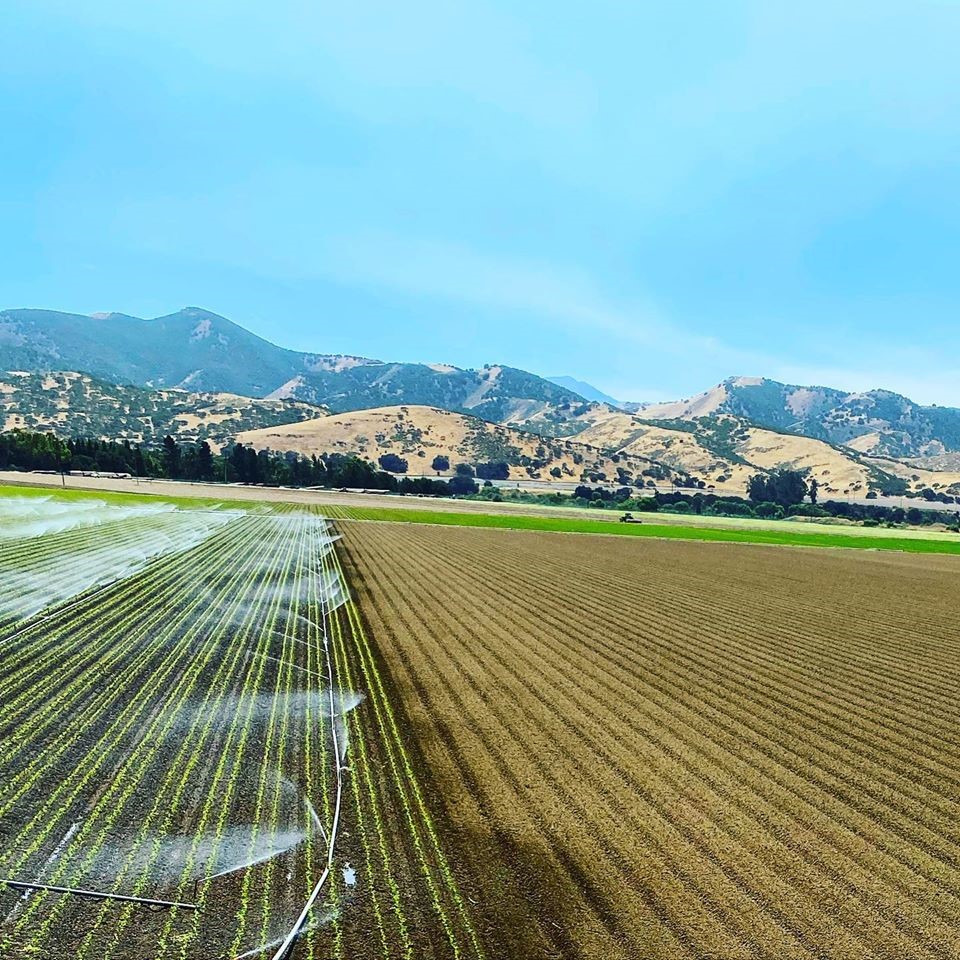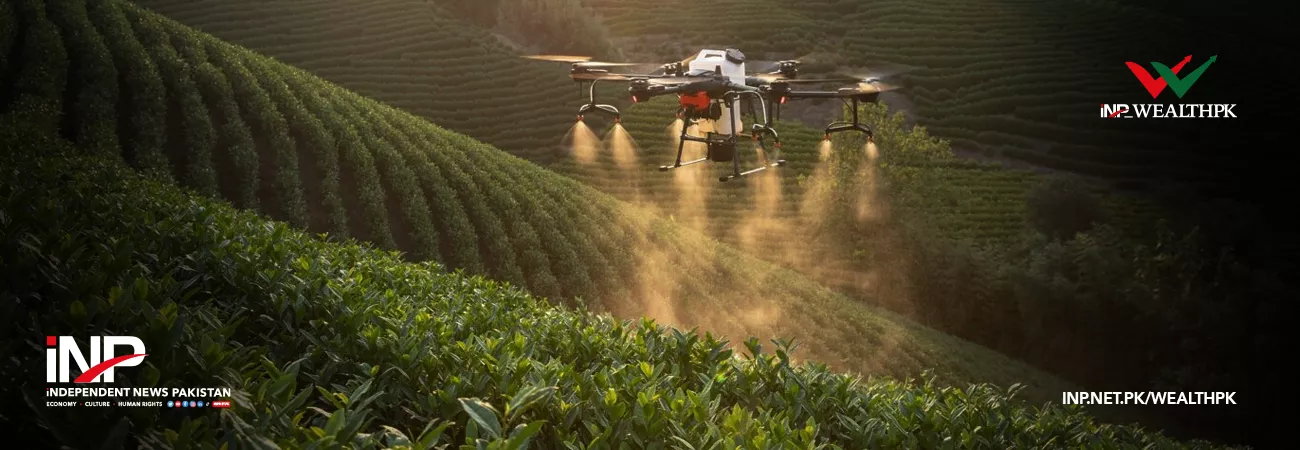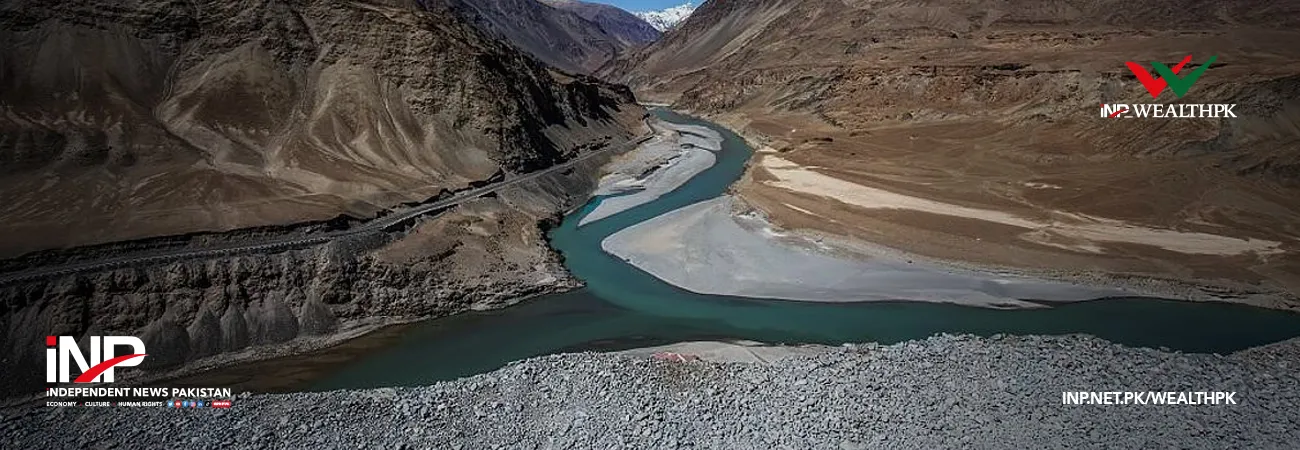INP-WealthPk
Arsalan Ali
Adopting climate-smart and regenerative agricultural practices can help revive soil fertility, enhance biodiversity, and reduce greenhouse gas emissions. Such practices can also reverse productivity decline, ensure food security and protect the environment, making the agri-food system more sustainable and resilient, reports WealthPK.

Dr. Aamer Irshad, Assistant Representative and Head of Program Food and Agriculture Organization (FAO), told WealthPK that Pakistan’s agricultural productivity has declined over the last six decades. While the agriculture growth rate was on average 4 percent between 1960 and 2000, it dropped to 3 percent between 2000 and 2010, and further to 2 percent between 2010 and 2020, he added.
Dr. Aamer emphasized that climate change has had a significant impact on agricultural productivity, particularly on water availability, which in turn has affected the sector’s performance. He highlighted the role of irrigation infrastructure and green revolution technology in the growth of Pakistan’s agriculture sector from 1960 to 2000.
However, he pointed out that the country’s technology stream in the agriculture sector was not up to mark, and new technologies were patented, restricting their availability to Pakistani farmers.Moreover, Dr. Aamer expressed concerns about the melting of glaciers, which provide over 60 percent of Pakistan’s water supply.
He was of the view that the temperature rise due to climate change has led to the melting of glaciers, and over 7,000 glaciers located in Pakistan may be unable to provide water after 70 years. This, in turn, will transform the agriculture sector, he added. Dr. Aamer emphasized that the agriculture sector must prioritize adaptation, mitigation, profitability, and biodiversity protection.
“Adaptation refers to the agriculture sector’s capacity to adjust and cope with the changing environmental conditions such as climate change, natural disasters, and pests. Mitigation, on the other hand, involves reducing the impact of agriculture on the environment, especially in terms of greenhouse gas emissions, he added. This can be achieved through the adoption of sustainable practices such as conservation agriculture, agroforestry, and organic farming, he added.
According to the FAO official, profitability is essential for the long-term sustainability of the agriculture sector. The farmers need to generate sufficient income to invest in their farms and adopt new technologies and practices that promote adaptation and mitigation, he said.
He further said that biodiversity protection was critical for maintaining the ecological balance of agricultural landscapes. According to a recent report by the World Bank, Pakistan’s agri-food system is crucial to the nation’s economy, but it has been facing low productivity and new risks from climate change.
The report highlighted that agriculture accounted for 23 percent of the country’s GDP and was the largest source of export earnings. Additionally, over 63 percent of Pakistan’s population and four out of five poor households reside in rural areas and rely on agriculture for their livelihoods, the report said.
However, the sector’s growth has been sluggish, with labor productivity in agriculture remaining stagnant for decades due to low crop and livestock productivity, it added. The report also revealed that major crops’ yield was 1.5 to 4.2 times below their potential and 2.1 to 5.6 times below the international best practices. It said rural poverty had declined at a slower rate, leading to a large rural-urban poverty gap. Furthermore, climate change poses a severe threat to food security, with crop yields potentially declining by up to 50 percent.
The report stated that the degradation of water and land resources due to agriculture had significantly reduced the sector’s contribution to sustained growth, poverty reduction, and food security. Soils, even in the most fertile areas of Punjab, are now showing low to extremely low fertility. The irrigated land is waterlogged, and 30 percent is highly saline, making it unfit for agricultural production.
The report pointed out that the irrigation and drainage system is in disrepair and ill-equipped to manage climate extremes, despite agriculture absorbing over 85 percent of all water withdrawn. The report emphasized that adopting climate-smart and regenerative agriculture practices could reverse the productivity decline, enhance the agri-food system’s viability, and improve ecosystem degradation.
Key actions for broad adoption of such practices include investing in research on context-specific methods for scaling up climate-smart and regenerative farming, improving coordination between research and dissemination, modernizing extension services, improving access to credit, machinery, and technology, and investing in the development of a sustainable value chain with a focus on smallholder farmers’ access, potentially through participatory multi-stakeholder forums, according to the report available with the WealthPK.
Credit: Independent News Pakistan-WealthPk













